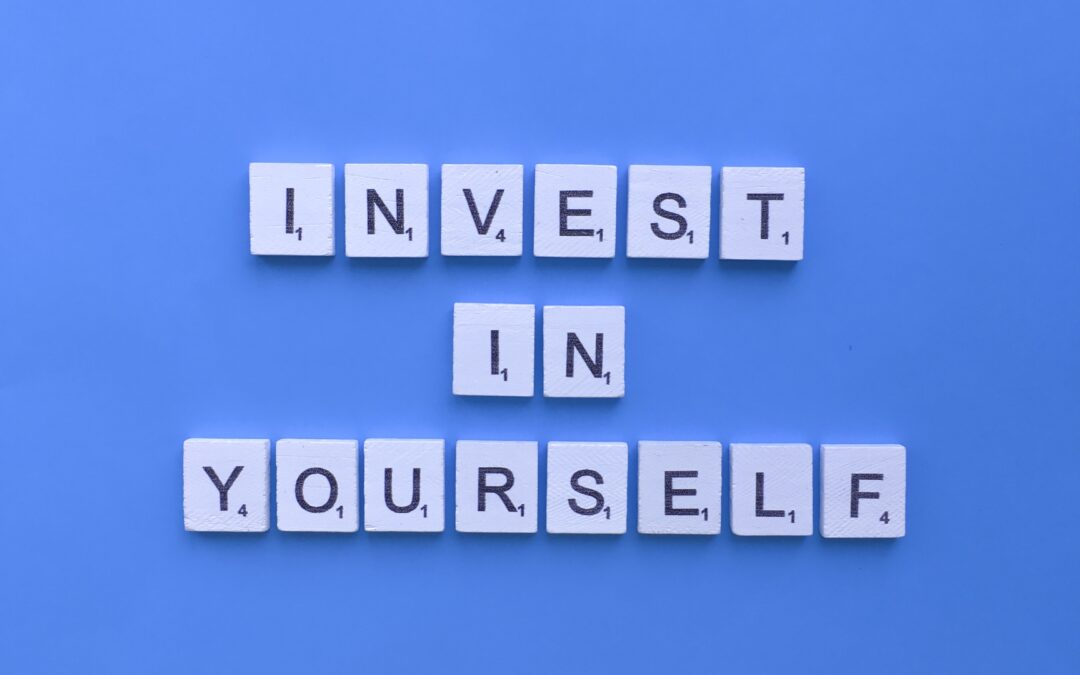One of the most common questions we get at WealthBuilders is, “What is the first thing I should invest in?” Our answer is always the same: yourself! Whether you’re starting with $1,000 or $5,000, you should invest in yourself before you put money toward assets.
The reason is simple. People are eager to fully jump into their wealth building journey, but impatience leads to mistakes. You don’t know what you don’t know. If you start investing with $1,000 before you’ve done your research, you will waste more than you need to.
The key to any good investing strategy is to understand the risk and reward. Then, you do what you can to minimize the risk and maximize the reward. When you invest in yourself, you reduce the risk.
What does it mean to invest in yourself?
Three things are essential to wealth building: time, knowledge, and money. If you lack money (which many beginner investors do), you’ll need to devote more time and knowledge to your wealth building strategy.
So, investing in yourself involves giving your time to obtain financial knowledge. A steady diet of books, podcasts, wealth building courses, and mentors will help you grow your financial literacy.
Successful investors are lifelong learners. That’s why investing in yourself is the foundation of wealth building. If you feel stuck in your financial journey, it’s probably time to invest in yourself and gain a new skill.
Here’s the cool thing– consistent and mindful investing will create a return. In other words, what you put time and intention towards will grow. As you invest in yourself more and more, your knowledge will compound. With that, here are three keys to investing in yourself.

3 Keys to Investing in Yourself
1. Assess Current Knowledge
This is the time to be honest with yourself. Do you know the basics of wealth building, or do you need a beginner course? It’s important to establish a foundation built on solid financial principles before you dive into deeper waters. Evaluating your current financial habits is a core part of investing in yourself.
For example, before you invest, it’s helpful to:
- Eliminate consumer debt
- Create and follow a budget
- Establish a safety net
- Buy a personal home
These are just guidelines, and you can start experimenting with investing before any of these are checked off the list. However, if you really want to start running and gunning with wealth building, these are some good benchmarks to hit.
Once you have your financial foundation, investing in yourself looks like getting paid experience. Rather than spending all of your investment dollars on courses and books, it’s time to get in the game and buy an asset (something that increases in value over time.) To do that, it helps to find your niche.

2. Find Your Niche
After you invest in yourself by learning core financial principles, you can move on to studying specific forms of investing. As a beginner, you may be intimidated. If that’s you, I have good news: there aren’t a million ways to build wealth–there’s only a handful!
Find one or two areas you have an aptitude for or want to learn more about.
This was my approach to real estate investing. When I was in my thirties, I realized I could replace my entire earned income if I cash-flowed $300 a month on a certain number of properties. So, I aimed to learn everything I could about real estate investing. When it was time, I got in the game and began purchasing properties.
Here’s the point: find a niche and master it rather than trying to become a jack of all trades.

3. Invest in Your Community
God designed us to grow together. We learn best from a community. Information is great, but impartation is better! One of the best things you can do to invest in yourself is to surround yourself with people who are making wise financial decisions.
If your network tends to be financially frivolous, that doesn’t mean you have to fire all your friends. However, you will need to be resilient against financial comparison. If your friends are buying expensive trips and fancy dinners they can’t afford on credit, don’t try to keep up with the Joneses.
Pray for divine connections and be on the lookout–God will put the right people in your path. Position yourself in growth environments like networking groups and conferences. If you feel stuck in your financial journey, it could also be a great time to hire a coach.
When you invest in yourself, it will produce a return. Adding value to yourself adds value to others, making us better servants and stewards of all God’s blessings. What have you found helpful for investing in yourself? Let us know in the comments!



